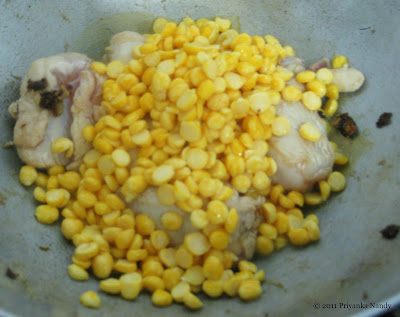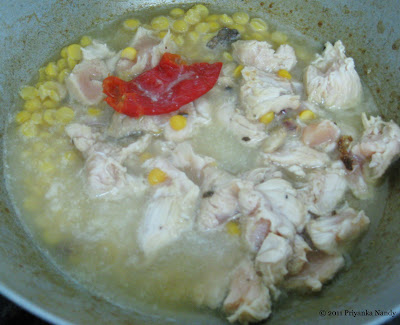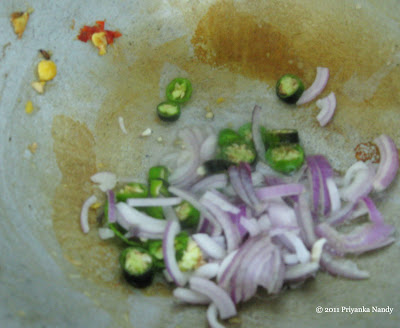When we were at school, English exams -- language, not literature -- were constructed thus: one essay, no less than two foolscap sheets long (well, maybe three sides and a few lines); one letter, between one and one-and-a-half sides of the same; one comprehension and textual analysis; and one question on grammatical exercise, with several subsections. It now seems unthinkable that we sat quietly at our desks, all sixty of us, and wrote two hour exams in long hand, and used nearly ten foolscape sheets each, but in college it was three hours, and we had to remember primary and secondary sources, and analyse them on our feet while developing a coherent thesis with enough proof to support it, all the while making sure this monster also specifically answered the question posed, which was frequently complicated, controversial, and quirky. And we had three such instruments of evil to answer in three hours, multiplied by two exams for each course and by four courses for each semester. So... sixteen such assaults twice each year, plus eight research papers.
My American undergraduate students had no idea how good they have it.
This recipe has nothing to with any of the above. Except that through middle school, we had one standard essay question that made steady, reassuring appearances over and over in final or half-yearly examinations. It came in many guises, but could accurately be paraphrased as the "Day When Everything Went Wrong" question. We were encouraged to render it comically, tragically, with a dash of adventure, or whatever else our moods and abilities lent themselves to. Some people had a running joke with the question, attempting it each year in different genres, but most people thought it was the easy way out and avoided it. We had our pride.
I'm unlikely to ever face the Day When Everything Went Wrong essay in an exam ever again, but should I come across it, this time, I will tackle it. My story of making daal gosht is sure to earn me a star AND a smiley face. What a catastrophe this dish has been!
Before we launch into that epic tale, here's what you need:
Gosht -- mutton or lamb, cut into pieces about an inch.
Daal -- one can use chholar daal, one can use mushur daal. I suggest chhola. To know what these are in your language, please see this list.
Garlic, ginger, onions, green chilies.
Cumin seeds, ground-at-home cumin powder. Garam masala.
Mustard oil, sunflower/canola oil.
First, we didn't have gosht to make daal-gosht with. No lamb, no mutton. We had chicken. Seriously. So we made daal gosht with chicken. Then, because the daal gosht was being made on request for someone who brought forward her visit from dinner to lunch at short notice, I tried to see if using large pieces of chicken would do (because chopping is such a time-consuming chore). It emphatically didn't, and I had to rework the whole thing. Then I forgot to add the onions and green chilies and had to redo from start. Again. Finally, I realised I either don't have cultured enough tastebuds, or the gas overn really has killed our cuisine... or the original recipe needs serious amendment. So I amended it.
And then our guest postponed her visit again, to dinner.
Anyway. The meal did finally end up being absolutely delicious, so if you want a taste, please follow the pretty pictures. And don't make my mistakes.
This ingenius instrument is called a daaler hata. Seldom used but vry useful. Crush the soft boiled and tempered daal with this so it makes a very granular, crumbly paste. Well, it won't actually remotely approach a paste paste, but it will provide a thick, creamy texture to the base.
So, I don't care about 'culture' and 'traditions of cooking'. The very nature of our kitchens and cooking equipment have changed completely. So unless you can cook this dish for four hours over a coal and/or wood fire that will ensure the meat cooks and is thoroughly tender, please marinate and lightly sauté it before you add the water and boil it. Your tastebuds will thank you :-)
My American undergraduate students had no idea how good they have it.
This recipe has nothing to with any of the above. Except that through middle school, we had one standard essay question that made steady, reassuring appearances over and over in final or half-yearly examinations. It came in many guises, but could accurately be paraphrased as the "Day When Everything Went Wrong" question. We were encouraged to render it comically, tragically, with a dash of adventure, or whatever else our moods and abilities lent themselves to. Some people had a running joke with the question, attempting it each year in different genres, but most people thought it was the easy way out and avoided it. We had our pride.
I'm unlikely to ever face the Day When Everything Went Wrong essay in an exam ever again, but should I come across it, this time, I will tackle it. My story of making daal gosht is sure to earn me a star AND a smiley face. What a catastrophe this dish has been!
Before we launch into that epic tale, here's what you need:
Gosht -- mutton or lamb, cut into pieces about an inch.
Daal -- one can use chholar daal, one can use mushur daal. I suggest chhola. To know what these are in your language, please see this list.
Garlic, ginger, onions, green chilies.
Cumin seeds, ground-at-home cumin powder. Garam masala.
Mustard oil, sunflower/canola oil.
First, we didn't have gosht to make daal-gosht with. No lamb, no mutton. We had chicken. Seriously. So we made daal gosht with chicken. Then, because the daal gosht was being made on request for someone who brought forward her visit from dinner to lunch at short notice, I tried to see if using large pieces of chicken would do (because chopping is such a time-consuming chore). It emphatically didn't, and I had to rework the whole thing. Then I forgot to add the onions and green chilies and had to redo from start. Again. Finally, I realised I either don't have cultured enough tastebuds, or the gas overn really has killed our cuisine... or the original recipe needs serious amendment. So I amended it.
And then our guest postponed her visit again, to dinner.
Anyway. The meal did finally end up being absolutely delicious, so if you want a taste, please follow the pretty pictures. And don't make my mistakes.
Heat a little oil in a wok. Fry some minced/crushed ginger in it till you can smell the lovely flavour.
Toss in the chicken. But please, please chop them into small pieces first. Unlike me.
Add the washed/soaked daal into the wok.
Mix it up!
Realise the chicken isn't getting anywhere while the daal nearly charred. Pick it out of the wok and chop it. Finally.
Because the daal was charring, add water to it in a rush. Add leftover giant red chilies for extra flavour.
Then add the chicken, quite forgetting they hadn't been sautéd and will now taste bland and boiled. Just see how white and undercooked it looks. Yuck.
Shrug off the chicken for the moment and see if the daal is done. Does a spoon paste it easily?
Yes, it does. Turn off the flame. Let some liquid remain in the daal and chicken.
Pick out the red chilies. Toss them.
Now, in the same wok (lightly washed) or a new one, heat oil, add jeera. Watch it nearly burn because you didn't realise how hot the oil was. Hurriedly throw in garlic to divert the heat's attention.
Add the boiled chicken and daal in a rush because oh my GOD, the jeera is almost black now!
Realise you've forgotten to add onions and chilies to the cumin seeds and garlic. Take everything off the wok, reheat some oil, and add the onions and green chilies.
While it fries, wonder how much damage you can do to weapons manufacturing companies if you buy their stock today. Then remember YOU would the one losing money -- amongst other people, but that's just detail -- and get back to cooking
Re-add the garlicky cuminy daal and chicken. Let it simmer for a while.
This ingenius instrument is called a daaler hata. Seldom used but vry useful. Crush the soft boiled and tempered daal with this so it makes a very granular, crumbly paste. Well, it won't actually remotely approach a paste paste, but it will provide a thick, creamy texture to the base.
While doing your culinary crushing, please remember to hold your work steady with yet another of our ingenius kitchen implements, the shNarashi. It grips the edge of the wok from within and without and allows for very little movement.
When a satisfactory amount of daal has been crudely pasted, add water. Scrape up the lovely, lovely brown cripsy layers that have formed at the sides and bottom of the wok. Come think of it, nothing's stopping you from deglazing with a little red wine if you're using mutton or lamb. Add salt and sugar after the water and mix in.
When the water evaporates, leaving behind a thick... mass, add garam masala and fold it in.
Transfer to a bowl and top with chopped coriander leaves hoping this will make it all right. Alas, it won't. It might make it marginally better. But the chicken will still taste like boiled chicken in mouthfuls of well-cooked daal.
So start over. Pick out the chicken and heap on a plate. Heat some more sunflower/canola. Toss the chicken in. Fry them on low, low-medium till they're lightly fried. Then add the daal and disintegrated chicken to the wok. Fry this over low too. The wok will have oodles of that wonderful crispy fried crust, but no more deglazing!
Add some more water. 'Cause why not, right? You need some gravy to make the other stuff go down!
When it thickesn to your liking, transfer to a serving dish.
Serve over lightly-buttered white rice. Or jeera rice. Or brown rice. Jasmine even. Any variety of rice you like, in short. No restrictions. Dive right in. Or, if after all this you still have the energy, make and serve with rooti or parathas. I ate the leftovers with parathas, and man, if they were good on Day 1 (after all the after-hours I put in), they were fabulous on Day 2. Somethings just taste better stale.
With plain buttered rice.
End Notes:
I just have this final comment. I picked up this recipe from various internet sites because this isn't a Bengali dish and no one in my family cooks it. The recipes differed, but they all agreed on one thing: no marination of the meat, and no sautéing before the boiling. I heartily disagree, on both counts. The chicken was marinated in lemon juice, salt and pepper because I was too rushed to do anything fancier, but even that helps impart a lovely flavour to the meat, and make it more tender. And the lack of sautéing, though unintentional on my part, rendered the meat nearly inedible.So, I don't care about 'culture' and 'traditions of cooking'. The very nature of our kitchens and cooking equipment have changed completely. So unless you can cook this dish for four hours over a coal and/or wood fire that will ensure the meat cooks and is thoroughly tender, please marinate and lightly sauté it before you add the water and boil it. Your tastebuds will thank you :-)

























11 comments:
Sounds interesting, but chicken for gosht! Nyaaaah!
I beg your pardon. I do believe I made it VERY clear that used chicken under duress and recommended only gosht be used for this.
This is just brilliant... I think its called Haleem also? Is it? I'm not sure. But I believe I had something similar at a family friend's place once. On Eid.
I envy you. You get to cook and eat such wonderful meals while I survive on hostel food. :(
There maybe finer points of distinction, but to me, this is exactly what haleem is :-)
And hostel food is a right of passage, darling. A couple of years hence, you'll be cooking all you please. In the meanwhile, I'm told you can bake very well. Maybe you could teach me how. I'm awful at precise measurements and patience that baking involves.
That was highly exciting, and reminds me of the time I tried to make your fried lentil balls. Failure after failure after OH SHIT MAYBE IF I...
Frankly, your english classes sound just as boring as a lot of mine (omg there is a squirrel falling out of a tree and then leaping nimbly to the telephone wire...). One that I thought SHOULD have been easier but wasn't was the Comparative Essay -- you're given two articles, and have to either compare or contrast them. But inevitably, they didn't really go together at all (I remember there was this one poem about a goddamned TURTLE for fuck's sake).
And nothing but rambling from me today!
That interjection about the squirrel was adorable! :D
Our English exams were actually great fun. For me anyway. I didn't have to have ten minutes prep time, told stories and compared pieces (we had that comparative thing too), and inevitably scored at or around the top.
Seriously, we occasionally wrote an essay or so during the school term, but usually all English classes were devoted to Dead White Men and the stuff they wrote. Now *that* was occasionally boring. Plus those exams, we had to study a LOT for.
I LOVE this post, so much, precisely because it's not "perfect" and shows you the kind of spontaneous, imaginative dexterity that, to me, signals the hallmark of a truly good cook. Any person can get exact measurements, prep reeealy carefully and then perform tasks as directed. But to be able to adapt to various situations (even to one's own forgetfulness) and come up with on-the-fly solutions to rescue/salvage the dish, imaginatively or instinctively (or both) figuring out new ways to add flavour to or enhance the dish concerned -- that's what I call creativity. :-)
Tor aar amar cooking styles are very similar. I think of cooking as a series of improvisations and additions and experiments, basically. I love taking recipes and making 'em my own, or just even creating new ones keeping some basic principles in mind. When I come back, we must have cooking parties, woman!
PS Thinking back, it amazes me that we used to be able to write such coherent, properly argued, interesting answers, year after year, semester after semester. There's a lot to be said about institutional practices that promote thinking on your feet, seriously. Ekhane student-der korte bolle oder heartfail hobe.
Kaichu, despite your questionable taste in book reviews, I every now and then find myself lapsing into warm and fluffy love for you :-)
We should have cook-ins! Get some basic supermarket cheese from the US? I'll let you know which.
And , I finished my three hour exams in 1.5 hours and got 'white tokens' each time.Did you?
I love this post,nice blog it's really helpfull.
bengali delicious foods menu
Post a Comment